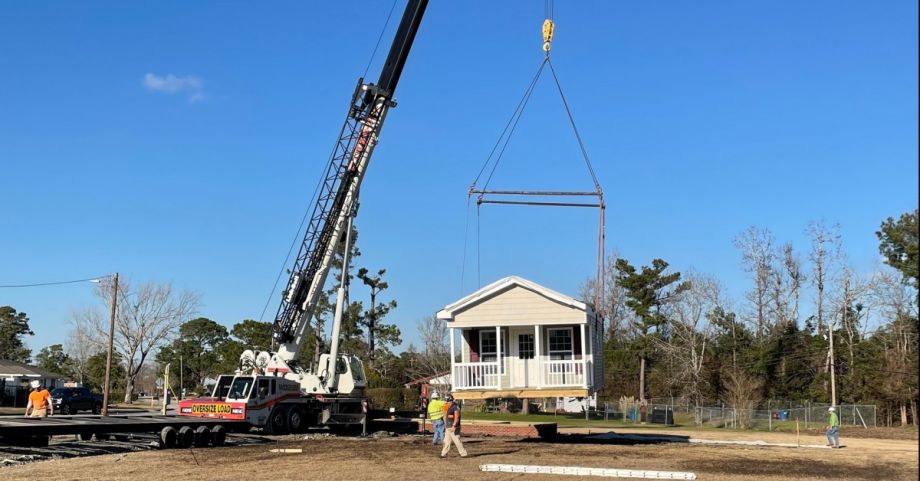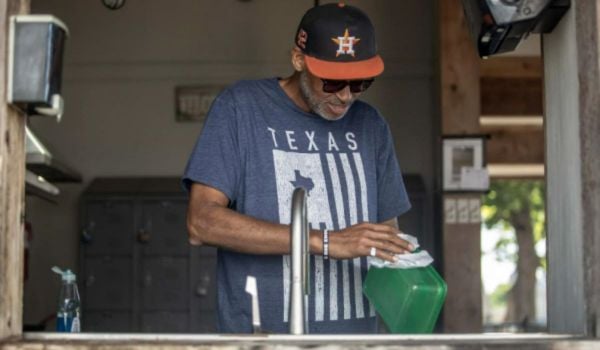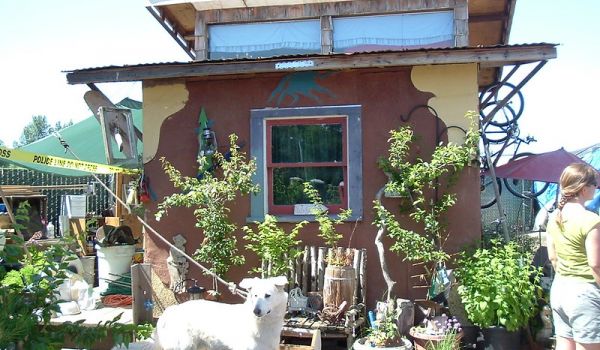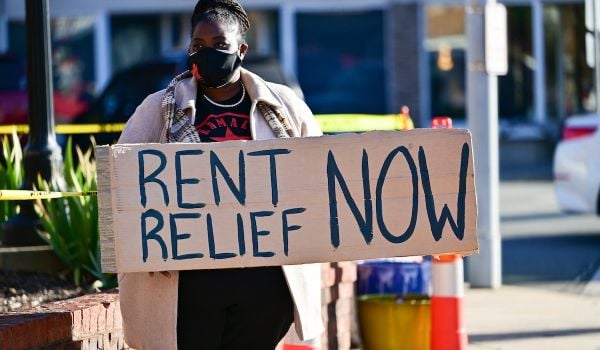Tom Dalton is an anesthesiologist in Wilmington, North Carolina. The voicemail greeting on his cell phone says that he is probably busy putting someone to sleep, or waking them up. Spending most of his time in hospitals, Dalton says he realized that many of the same people were returning for emergency medical care again and again. Many were chronically homeless and had a disability. After performing surgeries on some of those people, Dalton says, the hospital was releasing them to recover, as best they could, in a group shelter, or on the street. In the hospital where he works, Dalton says, chronically homeless people can be admitted 40 to 50 times a year. One man was admitted 246 times in a three-year period. Without individual housing, health problems can fester; the life expectancy for people who experience homelessness for long durations is much lower than the average. Now, Dalton and his wife, a nurse, are pushing forward with a plan to help house people with disabilities who experience chronic homelessness.
The project is called Eden Village, a community of 32 tiny homes in Wilmington for people who have experienced homelessness for at least one year and who have a physical or mental disability. The village, gated and pedestrian-only, is being built on a four-acre site adjacent to a planned Salvation Army complex, Dalton says. The land was sold to the group at about a third less than the market rate. The complex is only for single adults. Residents will pay $300 a month for rent and utilities, and as long as they observe the community rules, they can stay forever.
“It’s a medical question for us,” Dalton says. “It really is all about housing as healthcare.”
Eden Village began giving tours of its first house earlier this month, and Dalton says that he’s already received 272 applications or inquiries from potential residents. The group is fundraising for the homes, which can be sponsored for $40,000 apiece. They are manufactured at a site in nearby Laurinburg, North Carolina, and cost about $45,000 to build and $10,000 to install, though Dalton says the group plans to use volunteer labor for much of the construction. So far eight of the homes are fully funded, and donors have pledged matching funds for another 16 units, Dalton says. Once funded, the work should move quickly.
“The homes can be built in three weeks each, and we can bring in three a day and install them with a crane,” Dalton says. “They can be hooked up in a matter of hours.”
The concept came directly from the first Eden Village in Springfield, Missouri, where Dalton’s wife, Kim, grew up. That community, formed by a group of local church congregations, was “probably the quickest” development of permanent supportive housing for the chronically homeless ever developed in the state, says Nate Schlueter, chief operating officer for Eden Village in Springfield. The group raised its first dollar in August of 2016 and had its first resident move in in August of 2018, he says. A “huge part” of the swift timeline was finding and buying a property that was correctly zoned for tiny-home development — in Springfield’s case, the group bought an abandoned mobile-home park — which cut down on NIMBY backlash from neighbors, Schlueter says.
Schlueter formerly worked with Community First!, a much larger tiny-home development in Austin, and says that the concept at Eden Village was to keep the communities smaller, so that everyone could get to know each other by name. Residents of Eden Village in Springfield are required to observe certain rules — no illegal drugs, no smoking inside of the units, no more than four overnight guests per month, pick up after your dog — and otherwise can stay forever. The Village includes mental health services and other services onsite, but the group tries not to be overly prescriptive about how its residents live. Some residents have been removed for drug use, Schlueter says. But most residents remain for life, or as long as they please.
“Sometimes in America, with people in poverty, the first thing that the system does is we put them in places that we would never live …” Schlueter says. “We expect that person to be successful, and we’re so disappointed when they’re not.”
“As much as I love the Bible,” Schlueter added, he wouldn’t tolerate having his ability to pay his mortgage being tied to attending a certain number of church meetings, and neither should people who are experiencing homelessness. Many of the issues that are commonly associated with causing homelessness, like mental illness and drug addiction, are also prevalent among people who are housed, Schlueter says.
In the Eden Village founders’ view, the more immediate cause of homelesness is a “catastrophic loss of family.” A tiny-home village can’t replace a family safety net, Schlueter says, but it can offer a sense of community support. The group received some Community Development Block Grant funding to build out infrastructure, but otherwise all of the funding is raised through contributions and sponsorships. Residents all receive some type of Social Security or disability income. The onsite health and social services are offered by partner organizations.
The group is currently working on a second Eden Village community in Springfield, and planning for an eventual five tiny-home communities in the city. Schlueter says that in addition to the projects in Springfield and Wilmington, there are other Eden Villages in the works outside of Washington, D.C., and in Tulsa, Oklahoma, and Redding, California. The founding group has talked with people in 45 other cities about starting villages of their own, Schlueter says.
“We try to really simplify things and make it easily duplicated,” Schlueter says. “Sometimes building communities like this can take years and become extremely complex, and we wanted to be good stewards of our donors’ money and deliver quickly.”
Eden Village in Wilmington incorporated in March, bought the land in May, and was fully permitted by December, according to Dalton. What kind of an impact will it have in the city? According to Maegan Zielinski, the Homeless Continuum of Care Director for the Cape Fear Council of Governments, there were 132 people experiencing homelessness at the point-in-time count last winter, and 185 people in the homeless street outreach programs as of early 2021.
“I do believe that it is a very much needed resource,” Zielinski says. “I’m happy that somebody is doing something for our community, and hopefully it’ll be a starting point for more things to come.”
Dalton says there are between 50 and 100 people in Wilmington who meet the criteria for living at Eden Village. And even as the group continues fundraising for its first project, it’s already shopping for more land for its second.
This article is part of Backyard, a newsletter exploring scalable solutions to make housing fairer, more affordable and more environmentally sustainable. Subscribe to our weekly Backyard newsletter.

Jared Brey is Next City's housing correspondent, based in Philadelphia. He is a former staff writer at Philadelphia magazine and PlanPhilly, and his work has appeared in Columbia Journalism Review, Landscape Architecture Magazine, U.S. News & World Report, Philadelphia Weekly, and other publications.
Follow Jared .(JavaScript must be enabled to view this email address)


















